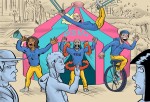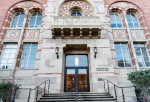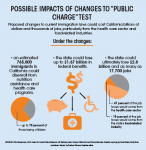UCLA, like any university, has a loneliness problem.
Loneliness is a problem experienced by people of all age groups, but it is most prevalent among adolescents. This is a result of adolescence being a period when acceptance and kinship are paramount to the formation of our identities.
This loneliness is only exacerbated by the stress of college and the homesickness that comes from moving away from our families. Ignoring this issue can lead to increased susceptibility to major psychiatric disorders, including depression, Alzheimer’s disease and personality disorders – disorders which have protracted periods of rehabilitation.
Addressing loneliness should clearly be a priority for our university.
UCLA has made attempts to tackle this issue through its EngageWell campaign, which is a part of its LiveWell campaign. According to the website of LiveWell, which is also known as the Semel Healthy Campus Initiative Center, the objective of the EngageWell pod – or focus area – is to foster “healthy and strong social relationships at UCLA through increased social connection, quality, and civility.”
However, the pod isn’t doing as well a job as it could to help combat loneliness and forge relationships. The LiveWell initiative itself doesn’t seem to be well-known among the student body. In fact, I only learned of the LiveWell initiative through a research project I undertook that involved examining loneliness and what colleges, including our own, have done to combat it.
The EngageWell pod also feels neglected in comparison to other pods. The LiveWell campaign has seven pods, each focusing on a different aspect of health and wellness. And while a pod like MindWell, whose goal is to promote better mental health, has an incredible amount of events every month, EngageWell has few events each month, sometimes even none – hardly a way to increase awareness of the initiative and its programs.
Some people would underestimate the damage that loneliness can have upon not just the student body, but the university itself. They may argue that the mental health agenda of MindWell deserves more attention than the creation and enrichment of personal relationships does. However, the lack of these relationships can lead to the same mental health problems we’re trying to prevent in the first place.
And even ignoring such a severe problem, having a university like UCLA be considered a lonely place is the opposite of what we need. The reason UCLA continually receives the highest number of applicants every year is because it is considered a school where you’d love to be – a school with an amazing academic reputation, yet lacking the cutthroat and lonely atmosphere other institutes at its level may possess. No student should have to spend these college years in solitude. This is one of the last institutions students will attend before joining the workforce, and if they are unable to make friends here, they may have serious crippling social problems follow them throughout their lives.
It is paramount the EngageWell pod is granted more events that can specifically aid students in developing relationships with others, and that the LiveWell initiative is given increased awareness through means such as weekly emails. Such promotion of the initiative could result in a sizable improvement in the mental well-being of our student body, especially those still acclimating to campus life.
Charkupalli is a first-year computer science student.





